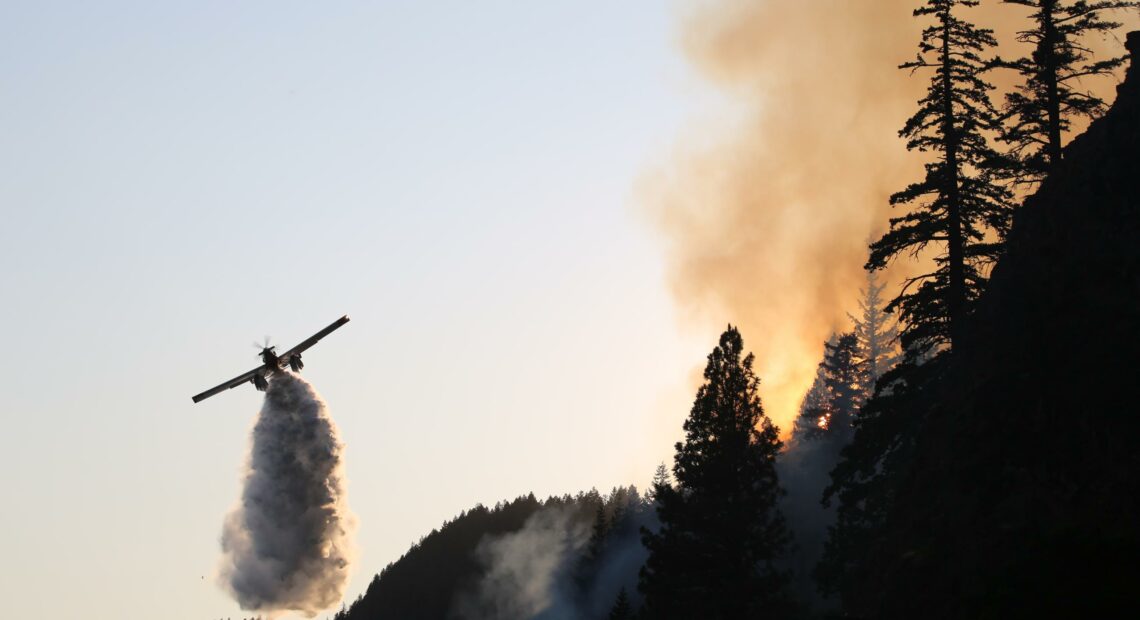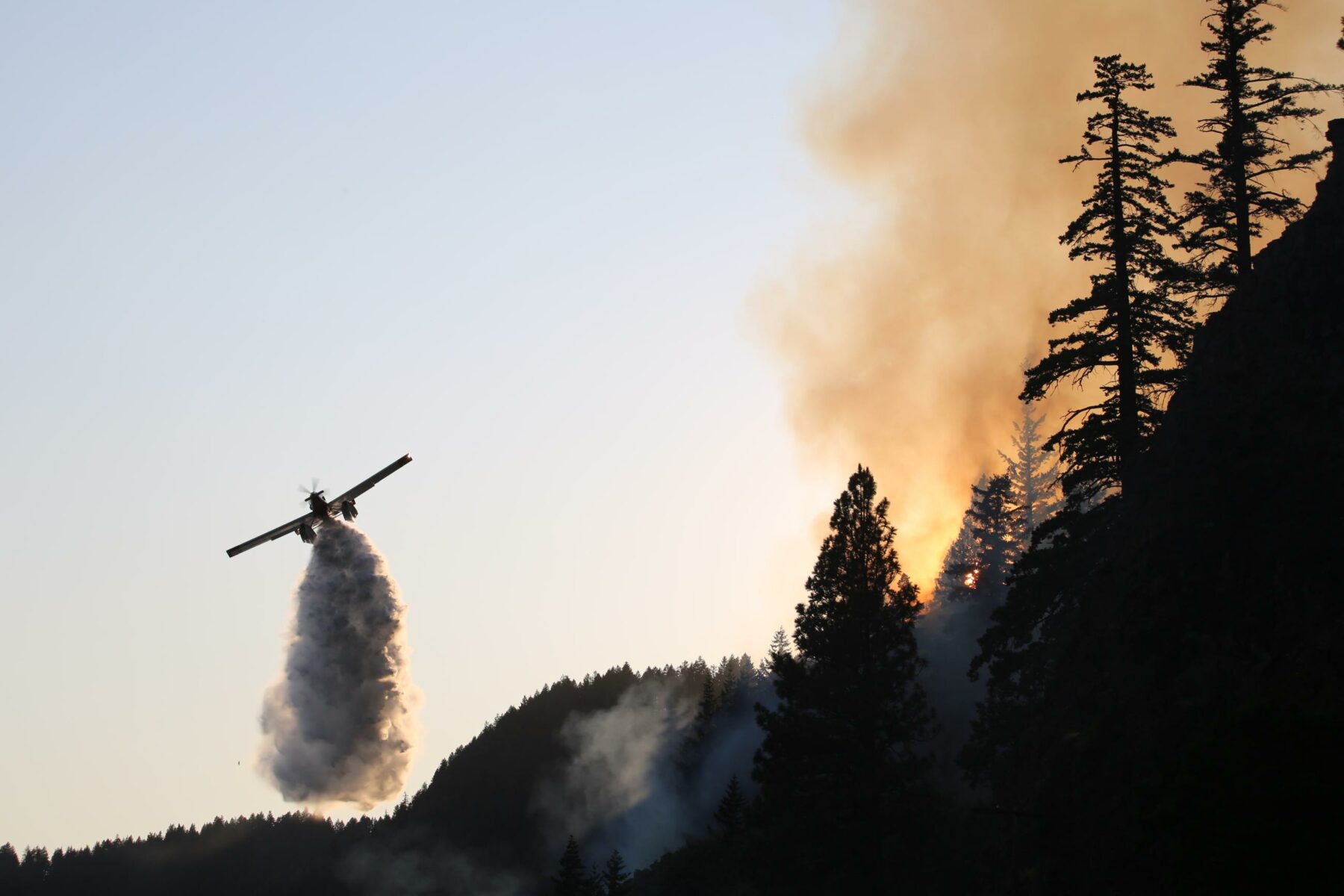
More people join lawsuit against railway company over Tunnel Five fire
Listen
(Runtime 1:51)
Read
More than 20 people joined a lawsuit against BNSF Railway related to the Tunnel Five wildfire. Last year, that fire burned over 500 acres near the border with Oregon.
Earlier this year, Lance Douglas Brooks, a Skamania County resident impacted by the Tunnel Five fire, sued BNSF for damages and injuries.
According to the initial complaint, Brooks rented a home that was destroyed in the fire, along with his personal belongings. The document also said the fire displaced around 1,000 residents and destroyed 10 homes. Now, more people have joined the case. One of the new plaintiffs is a Skamania County winery that lost its grape crop as result of smoke damage. Others had damage to their homes.
Stephen Hill is senior counsel with the law firm Singleton Schreiber, which is handling the case for the plaintiffs.
The firm has previously represented plaintiffs in wildfire cases, such as the 2023 Gray wildfire in Spokane County.
“We filed on behalf of one client. Since then, we’ve been engaged by a number of additional clients, so we needed to file an amended complaint,” Hill said.
The case started in Skamania County Superior Court, but then passed to the U.S. District Court for the Western District of Washington. The amended complaint was filed on June 13.
Hill explained the case changed courts based on diversity jurisdiction. Diversity jurisdiction exists when the parties live in different states and a large amount is in question.
“The plaintiffs are citizens of the state of Washington, the defendant is a Delaware corporation, and as a result of there being citizens of different states under the federal rules, the case is removable to federal court,” he said.
Hill said the initial case was based on a report from the Washington State Department of Natural Resources that found a train operated by BNSF caused the fire.
“According to the report, there was an older locomotive that was designated BNSF, number 2322. That was non-turbocharged and is notorious for setting up sparks,” he said.
The DNR report mentioned that a non-turbocharged engine has a high likelihood of emitting diesel carbon emissions from the exhaust, which could start a fire. It also said it was a practice not to use older non-turbocharged engines in the Columbia River Gorge during summer months due to their propensity to start fires.
That information came from an employee of another railroad company who provided testimony during the DNR investigation.
In a written statement, BNSF said the company does not comment on pending litigation, and that it’s committed to reducing the risk of fires around their tracks and equipment.
The company also mentioned they conduct thorough risk assessments that consider factors such as vegetation type, rainfall, relative humidity, temperature, wind speed and direction, and the type and extent of work activities.
“We clear brush, cease hot work activities during periods of high winds or unpredictable gusting wind, use spark shields, pre-wet the work environment when needed, and designate fire watchers to be able to react quickly in the event of a fire,” the statement said.
BNSF also said they have two specially equipped firefighting trains, including one that was built specifically to serve the southwestern part of the state. The company also works closely with local fire agencies during fire season.
















